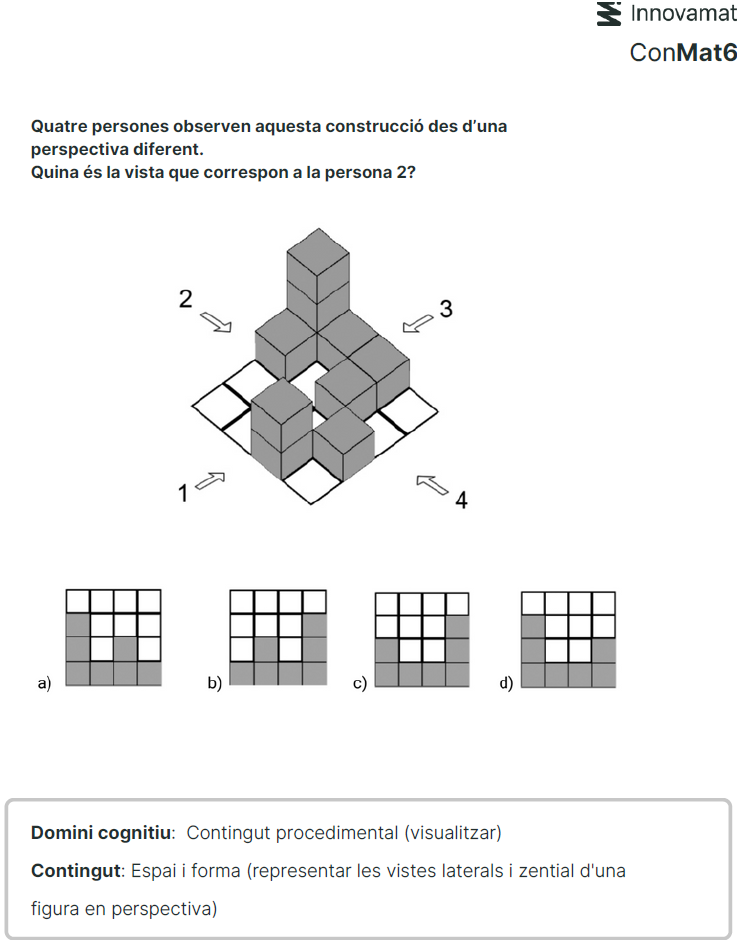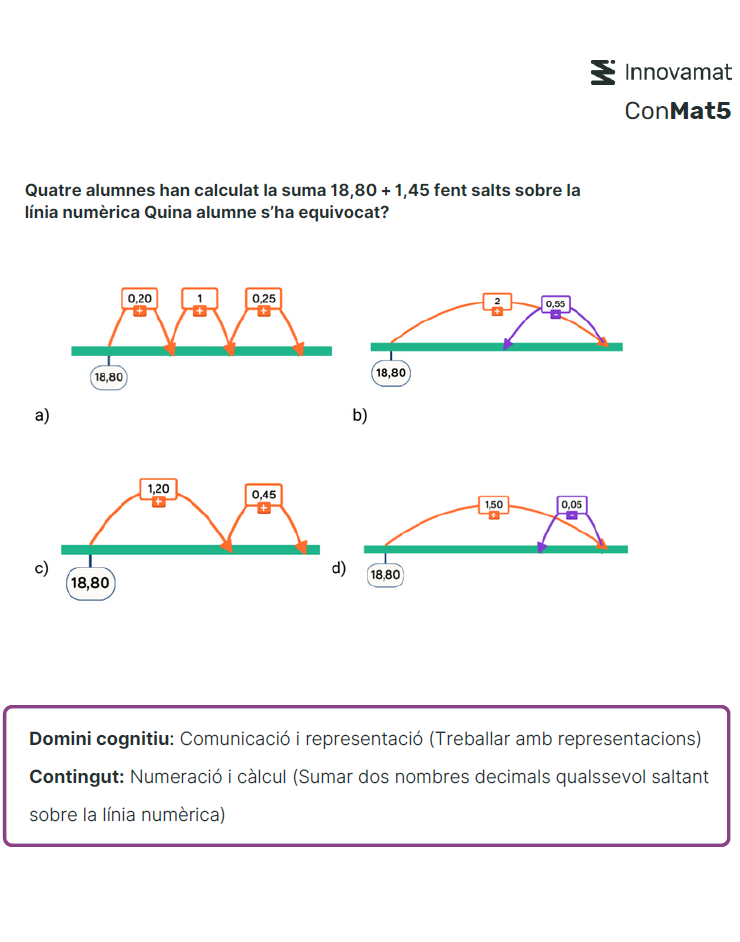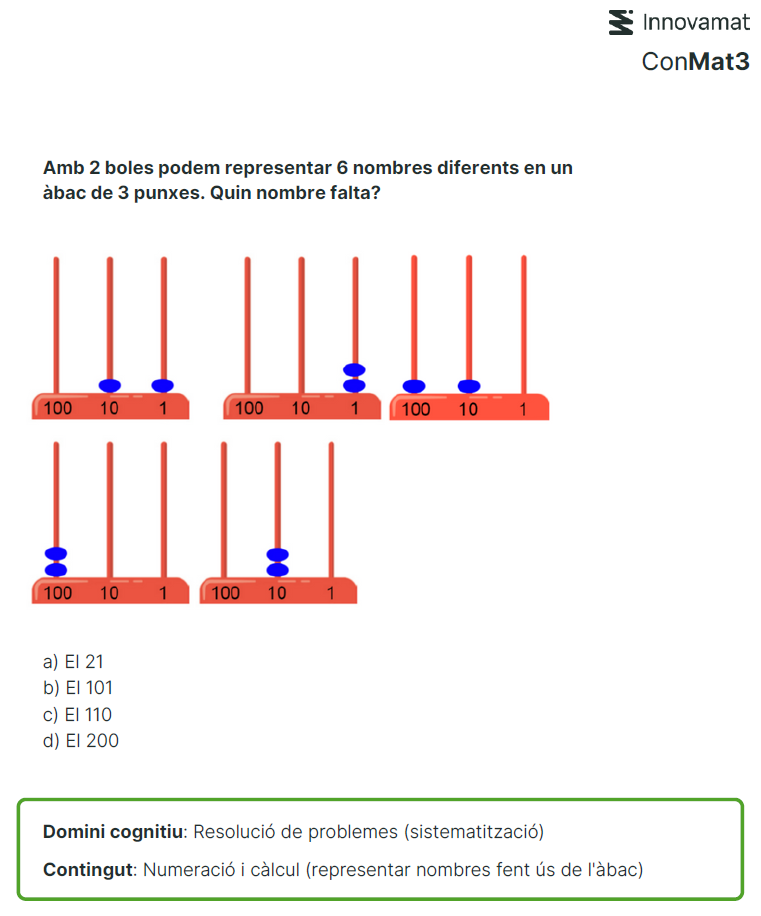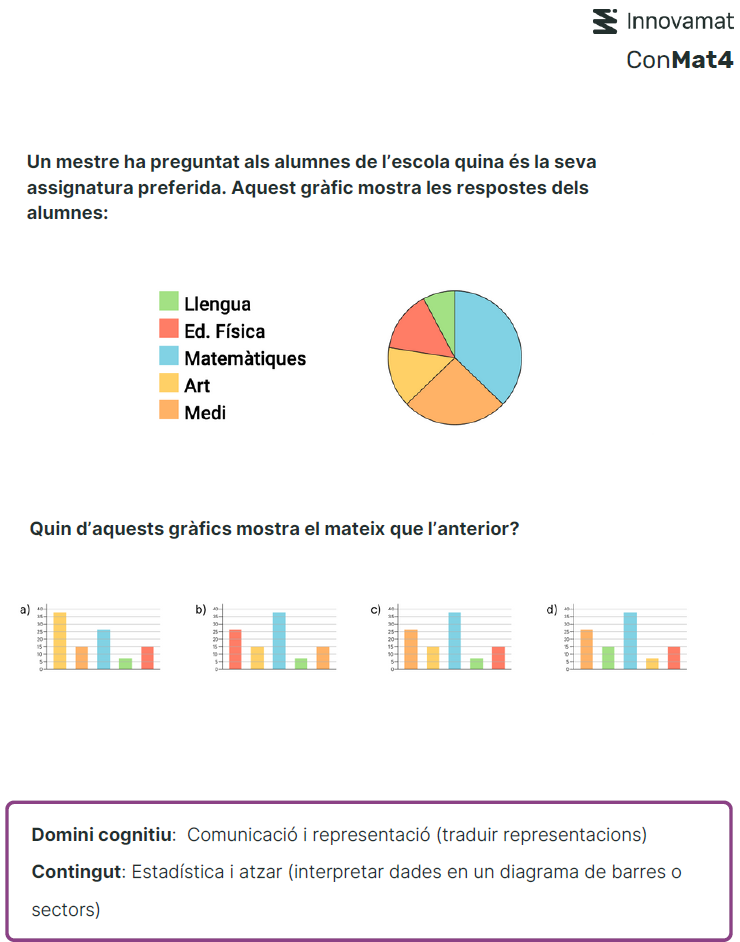06 Jun Maths that Make Sense
At Escola Peter Pan, we understand mathematics as a tool to make sense of and transform the world, not just as a collection of calculations or formulas to memorize. That’s why we’ve chosen a learning approach rooted in real, meaningful, and dynamic mathematical thinking: Innovamat’s ConMat allows us to assess this precisely. At the same time, we give importance to the independent practice of mental arithmetic and the automation of basic operations, essential tools for fluency in problem-solving.
What mathematical foundations do we aim to build?
The didactic foundations we work on with Innovamat materials are designed to approach mathematics through understanding, reasoning, and critical thinking. It is not just a collection of resources, but a way of experiencing mathematics with meaning and depth — a methodological proposal based on the idea that everyone can learn mathematics when given the right tools and contexts. The work is grounded in manipulation, discussion, problem-solving, and reasoning, in a progressive and developmentally appropriate manner.
This approach is rooted in research on mathematics education, cognitive psychology and educational neuroscience (Bransford, Brown & Cocking, 2000; Boaler, 2016;
Siegler & Ramani, 2009).
Studies like these show that we learn better when:
- we start from familiar contexts that are meaningful and close to our reality;
- we use concrete materials before moving toward abstraction;
- we discuss strategies with others;
- we build knowledge actively rather than passively receiving it.
What does this look like in the classroom?
In Primary School, our maths curriculum is structured into three main blocks:
- Context sessions: Each unit begins with a meaningful problem situation. From this starting point, questions arise that spark curiosity and activate prior knowledge. For example: “Can we know how many books are in the library if we can only see part of them?” These situations spark debate and encourage critical thinking.
- Independent work sessions: With hands-on materials (cubes, number lines, cards, tablets…), students explore, experiment, and make mistakes in a safe environment that values the learning process over the final result. Here, we introduce self-assessment and ongoing feedback, both of which are key to developing self-regulated learning (Hattie & Timperley, 2007).
- Maths talking moments: Student-led discussions — in pairs, small groups, or whole class — are a fundamental part of the learning process. In these sessions, strategies are verbalized, different ways of solving a problem are compared, and shared understanding is constructed. Teachers guide the discussion with open-ended questions and help make mathematical reasoning explicit. These conversations foster metacognition and deepen understanding.
An inclusive and personalized perspective
The use of hands-on materials, rich and open-ended activities, and transparent algorithm construction allows us to respond to the diversity of learning styles and paces. Real-life contexts, physical manipulatives, and process-focused approaches ensure that every child finds their place in mathematical learning. The programme also includes challenges and extensions for those who need more depth, and visual and conceptual supports for those who need more guidance.
Mathematics with emotion
One of the greatest benefits of this approach is that children are genuinely engaged. Mathematics is no longer a feared subject — it becomes an intellectual adventure, full of challenges and discoveries. We see students celebrating their hypotheses, asking questions with enthusiasm, and reconnecting with a subject that too often had been a source of frustration.
At Escola Peter Pan, mathematics makes sense because it connects with life, thought, and emotion.
That’s what we want: for every child to feel capable, curious, and at the heart of their learning. Because understanding the world — and transforming it — can start by looking at it through mathematical eyes.





